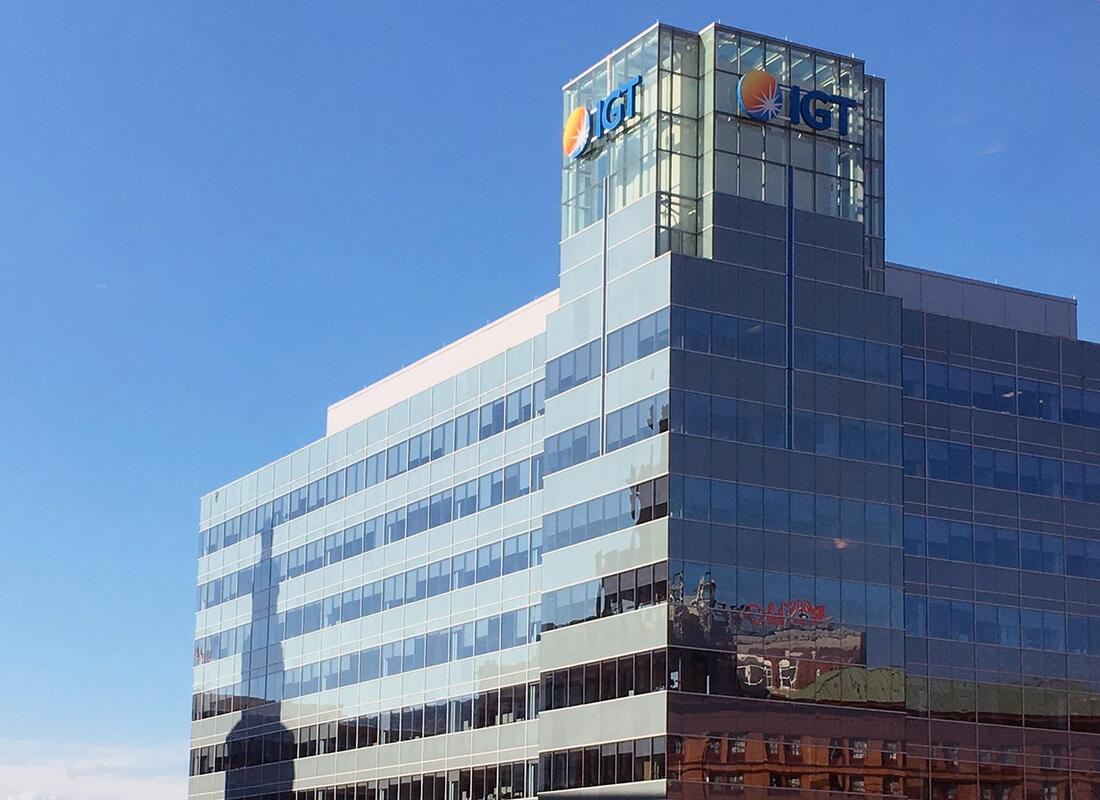|
PROVIDENCE -- While Governor Raimondo has put her stamp of approval on the latest version of the proposed no-bid, 20-year Lottery deal for IGT -- and top legislative leaders have also endorsed it -- House Republican Leader Blake Filippi is questioning a potential $660 million in “overpayments.” ’It’s arithmetic,″ said Filippi of his conclusions on how much of a “premium” the state is paying, and would continue to pay, International Game Technology for a 1,100-job commitment. Filippi is the lawyer, cattle farmer, and scion of the family that owns the Hotel Manisses on Block Island who heads the nine-member GOP bloc in the 75-member House. He says his conclusions are based entirely on the findings of Christiansen Capital Advisors LLC, the independent consultant House leadership hired last year to analyze the proposed IGT deal. Despite these findings, he said, he has been unable to convince House leaders to bring the Maine-based consultant to Tuesday’s House Finance hearing to provide potential counterpoints to IGT’s presentation. “I think there are forces pushing for this contract to be inked,″ Filippi said. “They are trying to push this thing through without a proper vetting.” One of IGT’s biggest competitors in the gambling market, Scientific Games, sent lawmakers a memo promising a better deal for the state if it was allowed to compete to regain the instant ticket contract it lost in 2017. On the flip side, several business owners sent the lawmakers a letter urging passage of the IGT legislation to protect “thousands of jobs” already here and position Rhode Island for growth. “Facing a massive economic crisis caused by the COVID-19 pandemic, we need predictability to plan our [own] growth and manage our budgets more than we ever have before,″ said the letter signed by executives at Pro Health Inc. in Providence, Electro Labs in Cranston, Millennium Consulting in South Kingstown, ATR Treehouse in Providence, Aid Maintenance Co. in Pawtucket and Corvus Technology Resources in Cranston. Of the $45.2 million the Lottery paid IGT in the fiscal year that ended June 30, $18,270,303 was to lease the majority of the video-slots at the state-run Twin River casinos in Lincoln and Tiverton. Another $8,820,844 was for the “central monitoring system,″ which is the brain that powers and keeps tabs on the machines. The consultant questioned why Rhode Island continues to lease video-slots at all, at a percentage of gambling revenue, when the vast majority of slot machines in North America are purchased. “The math behind this is simple,″ the report said. “In FY2019, Rhode Island casinos [paid] $272 and $277 per machine per day at Tiverton and Twin River. That is approximately $100,000 per machine per year.” By way of comparison, “most slot machines or VLTs cost between $15,000 and $25,000 ... have at least a five-year useful life. ... Some remain on slot floors for 10 years or more. Thus, it is easy to see why ... 90% of casino owners ... chose to buy rather than lease.” The House’s consultant also raised questions about the cost of the IGT-run central monitoring system: “Based upon our analysis of comparable jurisdictions, Rhode Island is paying considerably more than its peers.” “We dug into the numbers,″ Filippi told The Journal in advance of the House hearing. “It is staggering how much we are over-paying.” He said the state could potentially buy and replace every one of 5,200 video slot machines every 10 years at a cost of $104 million, and $208 million over the 20-year contract, instead of leasing them for a potential $728 million “under the terms of the contract.” By his calculations, that alone would save the state $520 million. He also deduced from the consultant’s findings that Rhode Island could save another $140 million over 20 years on the central monitoring system, for a total savings of $660 million. Responding during a House Finance Committee hearing, Mark Furcolo, director of the Department of Revenue, said that option of buying the machines was not considered because the dollars required would be “very large.” (He also disputed the use of the term “lease,″ to describe the percentage-of- revenue fee arrangement.) Marc Crisafulli, a top Twin River executive, told the lawmakers he would worry about the annual machine replacement requirement sliding if the video-slots got caught in state budget-cutting. The reworked bill still promises 1,100 jobs paying at least 150% of the state’s minimum wage, which is rising to $11.50 an hour in October, with an aggregate payroll equal to 250% of the minimum wage and a $6,400 penalty for every employee the company falls short of its employment requirement. It also requires Twin River, as IGT’s new joint-venture partner, to add at least 30 “senior management” employees within 2 years. The current number of IGT employees is unclear, but IGT Chairman Robert Vincent told The Journal that about 45 employees remain on furlough as the company emerges from COVID shutdown. Approximately 40 have been laid of “throughout the organization but generally in corporate support functions. As with most businesses, we are trying to be as efficient as possible.” KATHERINE GREGGThe Providence Journal Comments are closed.
|
MEDIA INQUIRIES
CATEGORIES |
Learn More About Us |
Constituent Services
|
State Government |
About rhode island house republicans
In 1636, Roger Williams, founder of Rhode Island, established the first working model of Democracy after being banished from Massachusetts for his “extreme views” concerning freedom of speech and religion. Thomas Jefferson and John Adams publicly acknowledged Williams as the originator of these concepts, along with the freedom of public assembly, in the First Amendment in the United States Constitution. Today, Rhode Island House Republicans uphold the liberties designed by our Founders and preserved in our Constitution, and are the primary legislative body promoting lean government, fighting for lower taxes, and advocating for initiatives and policies that improve the economy and in turn, the lives of Rhode Islanders. As members of a part-time assembly, we are small business owners, retired educators, community activists, lawyers, farmers, military service veterans, volunteers, former local officials, retired social workers, coaches, musicians, churchgoers and board directors -- bringing these community engagement and professional experiences to our work, on your behalf, at the Rhode Island State House.
2024 Rhode Island State House Republicans | 82 Smith Street, Room 106 Providence, RI 02903 | 401..222..2259 | Email Us


